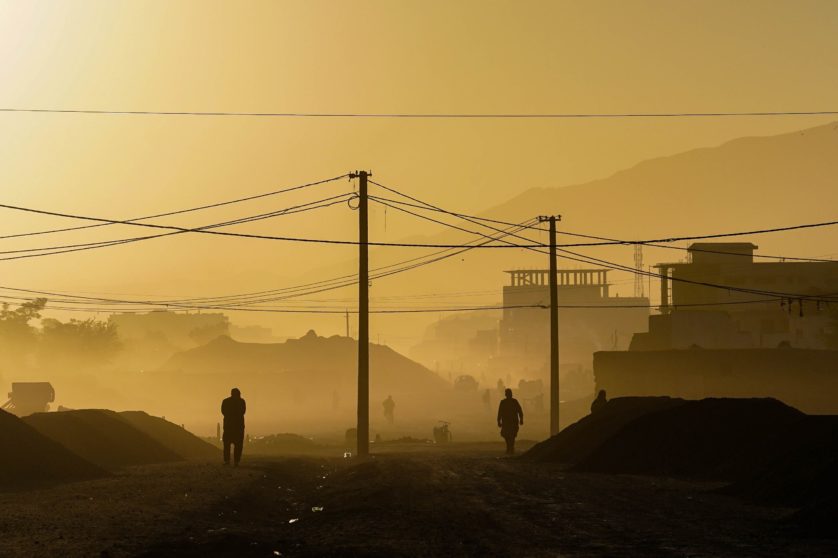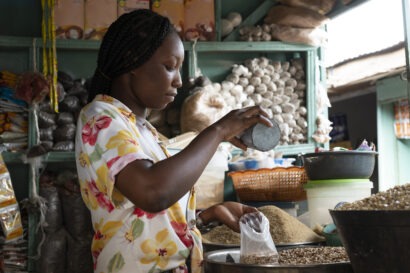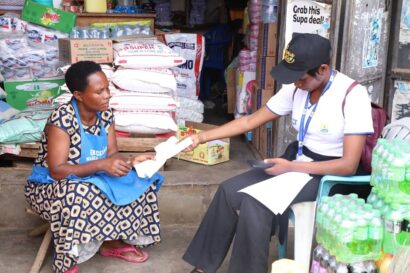When the Taliban dramatically gained control of Afghanistan in August 2021, they used bombs and guns to swiftly overcome state security forces. But they also had another valuable and effective weapon at their disposal: taxes.
Long before the withdrawal of US troops, the Taliban had developed a remarkably state-like system of taxing citizens on everyday goods like cigarettes and perfume. The money raised turned out to be an essential part of the Taliban’s military strategy, allowing them to expand territorial control, checkpoint by checkpoint, as an integral step towards victory.
My team’s recent investigation in Afghanistan found that the Taliban was arguably more effective than the former government – which had the benefit of international funding and expertise – at collecting taxes.
And while estimates of Taliban revenue are notoriously unreliable, the group is reported to have made in the region of US$40 million (£33 million) a year just from taxing opium. Collecting these taxes not only funded the war effort, but also helped to undermine the government they were seeking to overthrow.
Many of the Afghans we spoke to felt that the Taliban’s taxes were fairer than those imposed by the government, which often involved bribery and complex bureaucracy. By being relatively less onerous and less corrupt, the Taliban exploited widespread Afghan frustration with government incompetence.
Local commanders determined the most effective way to extract revenue from a community, being careful not to press so hard as to provoke a backlash, while creating relationships and a quasi-social contract. All of this played an important role in the Taliban securing national control.
The Taliban’s taxes on the transport of goods are a prime example. In the years leading up to 2021, the Taliban gradually instituted a relatively formal customs tax using a system of checkpoints across major roads.
Taxpayers received formal receipts emblazoned with the Taliban logo. Price lists, on “official” Taliban papers, circulated among truck drivers and business owners. There were even complaints procedures for those who felt they had been overly taxed.
The system appears to have been deliberately designed to be more user friendly than the one imposed by the government. One truck driver told us that unlike with the Taliban, he had “to pay a bribe to pay tax to the Afghan government”.
All of this helped the Taliban gain legitimacy with powerful merchants and transport firms, who later played a key role in the eventual takeover.
For when Afghanistan’s major border crossings and several provincial capitals fell in July 2021, many wondered why they fell so quickly and with relatively little violence. It quickly emerged that local business owners, seeing which way the war was going, were motivated to encourage a quick and orderly handover.
So as the Taliban took more and more territory, its revenue grew, and could be immediately channelled back into the war effort. The capture of border crossings kept Taliban coffers full as they marched on Kabul.
Death and taxes
A year on though, the Taliban will be realising that taxing as an insurgency is far easier than raising revenue as a government. Before August 2021, some 80% of the Afghan national budget was comprised of international aid. That money has now largely been cut off, and the country’s reserves frozen.
Even so, the US Institute of Peace estimates that the Taliban-run government collected some US$400 million in revenue during the last quarter of 2021. While less than half of what the government revenue had been in the same period during previous years, it’s nevertheless substantial.
Still, it is unlikely that the Taliban – so long as it remains unrecognised and isolated – will be able to raise enough revenue to avert economic collapse.
Amid a humanitarian crisis which has sparked warnings that 95% of Afghans do not have enough to eat, few have the money to pay tax. Aid agencies fear paying Taliban taxes, lest they be found in violation of counter-terrorism policies and sanctions. The situation is increasingly dire.
But what happened in Afghanistan offers lessons for how wars are understood elsewhere. Insurgent taxation is an overlooked yet critical part of war economies across the world, from the Houthis in Yemen to Al Shabaab in Somalia.
A better understanding of how the Taliban were able to collect so much money and build effective financial systems, could have provided signals about how – and how quickly – territory would change hands. The international community needs to rethink its outdated responses to these kinds of tactics, instead of relying on military strikes and sanctions, which did little to stop the Taliban.
This article is republished from The Conversation under a Creative Commons license. Read the original article.
The research mentioned in this blog can be found in the ICTD’s Working Paper 138: Taliban Taxation in Afghanistan (2006-2021) by Rahmatullah Amiri & Ashley Jackson.



